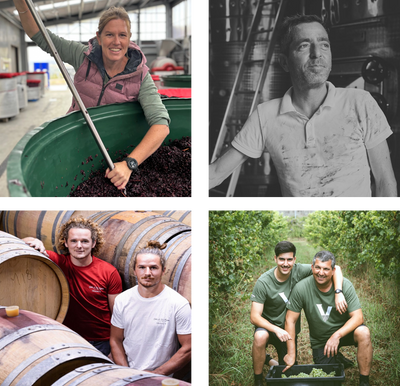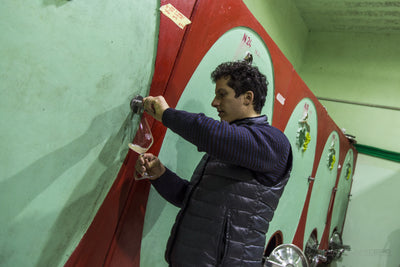We may be wine merchant first and foremost, but we do sell a few other bits as well, and this spectacular vermouth is too good not to shout about! Introducing Adi Badenhorst's extraordinary vermouth, Caperitif. It's our all favourite, pre, post and during dinner drink, and we love the story behind it even more.
Inspired by European vermouth and created with unique South African flavours, the drink’s deeper origins in fact lay with the Dutch explorers, who used herbs to help their wine last through long voyages of discovery, and infused wine with quinine to fight malaria. By the late 1800s however, it had crossed the line from practical measure to recreation and a commercially produced Cape Aperitif, or Caperitif was born. It was used to make many cocktails, appearing in the Savoy cocktail book, and being poured in bars all over the world, from French Cabaret Bars to American prohibition era Speakeasy’s. And then, sometime in the 1930s, the company that made it vanished overnight, as did Caperitif. From then on, it was known as the “ghost ingredient” by bartenders and mixologists, and often replaced in cocktails by French vermouths like Lillet.
Fast forward nearly 100 years, and it’s thanks to a visit to South Africa by Danish mixologist Lars Lyndgaard Schmidt and a chance encounter with winemaker Adi Badenhorst that Caperitif has returned. The original recipe might have vanished, but after much investigation and reading of the history books, Caperitif is now produced by fortifying high quality Chenin Blanc wine from Adi’s farm, and then infusing it with some 35 natural botanicals. Key ingredients include cardamon, cinchona, quinine, rooibos, and several lesser known citrus fruits, as well as numerous types of indigenous African fynbos. Many of these plants don’t occur anywhere else in the world, and each has their own unique flavour and intriguing aroma. It’s these intensely aromatic plants that form the base of Caperitif, and the unique “Cape” flavour. Made in small batches, each one gets a number, much like a wine to be vintaged. A ghost no longer, a new generation of Caperitif has entered the cocktail pantheon, blending history, geography and invention!
We love Caperitif on the rocks with a generous dash of tonic, or if you’re feeling adventurous, do check out some of the cocktail recipes online! Find Caperitif online here.
"Revived from a once-famous South African aperitif lost since 1910 when the company that made it disappeared, Caperitif stays true to its roots with distinctly local ingredients. Made from a Chenin Blanc fortified with spirit, bittered by quinchona bark and flavoured with around 35 indigenous Cape ingredients such as fynbos, kalmoes and naartjies, this vermouth tastes unlike any other. Winey, but with a discernible amount of spice on the nose, there are hints of orange peel, clove, ginger, and rooibos tea. Dry but with a slight acidic sweetness, it’s by turns fruity and bitter. Sip neat and it’s intense. Sip long with tonic, ice and a little garnish of orange peel and you have a beautifully refreshing, distinctly different summer drink. And at only 17.5 per cent, it’s perfect for those seeking a lighter drink, without skimping on flavour." The Independent

